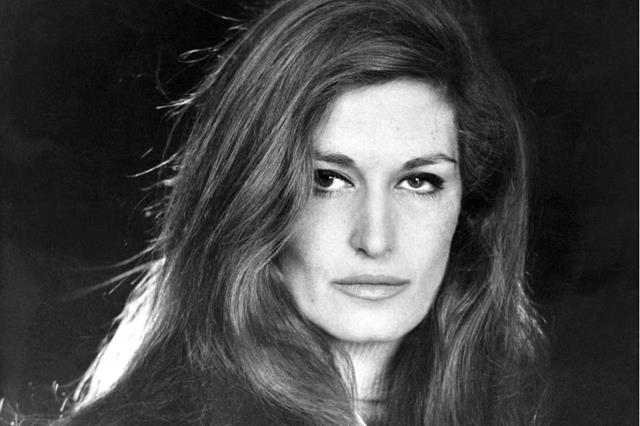
Renowned Singer Of 'Helwa Ya Baladi', 'Salma Ya Salama' Remembered At French Institute
The lecture was organised by the French Institute of Jordan (IFJ), where French scholar Jacqueline Jondot presented her research, titled“Dalida in Egypt”, in which she depicts the Italian singer's life in Cairo before her rise to international fame.
To celebrate the month of“Francophonie”, dedicated to French-speakers around the world, the IFJ chose to honour the diverse forms of the French language, recognising the iconic Dalida as one of the symbols of linguistic variety.
Jondot opened the conference by sharing that her study delves into Dalida's earlier, less-explored years in Cairo, before she gained fame and moved to France.“The traces and witnesses of Dalida's time in Cairo are fading, urging us to quickly grasp the essence of her Egyptian journey,” she emphasised.
Dalida, born as Iolanda Gigliotti, emerged from a pious family rooted in rigorous values. Her grand-parents originated from Calabria, in southern Italy. Towards the end of the 19th century, amidst the struggles encountered in the south of Italy, a significant number of Italians decided to look for better life conditions in Egypt.
Iolanda's family found their new home in the cosmopolitan neighbourhood of Shubra, in north-eastern Cairo, where a number of foreigners chose to settle (Italians, Greeks, Armenians, Levantines ... This vibrant community hosted places that served as settings for cinematic productions.“Numerous cinemas and some of the first cinematographic studios were located in this area. Many artists were born there,” said Jondot.
In addition to this stimulating neighbourhood, Dalida grew up in an artistic atmosphere with a violinist father and a skilled tailor mother. Baptised in the Saint-Marc church, she was raised in a pious environment and showed interest in sacred history, remaining devout throughout her life.
“Due to the outbreak of the Second World War, the British, though Egypt was nominally independent, retained a powerful presence. They decided to intern all Italian men suspected of sympathising with the German-Italian alliance,” Jondot explained. Iolanda's father, Pietro Gigliotti, was interned in the harsh conditions of the Fayed camp, in the desert, which permanently scarred him and made him become a violent man. This marked her first major traumatism as a child.
Highly esteemed by the Nuns at her school, she proved to be a dedicated student, mastering French, Italian and Classical Arabic. She started comedy through theatrical performances at her school. At the age of 13 years old, she achieved her first success portraying the role of the Goddess Isis, later earning the lead role in a play centred on Christian martyrs.
She was directed towards technical studies, which led her to work in a pharmaceutical company, as a secretary. After being fired for her lack of commitment, she then worked for a fashion company in Zamalek, where Jondot speculates she acquired her majestic posture and distinctive poses.
During this period, she encountered beauty contests organised by photographers like Angelo Boyadjian.“In 1951, Iolanda decided to participate in a 'Bathing Beauty' contest, organised by a swimwear shop. She won the second prize,” explains Jondot.
“The path to Miss Egypt was wide open for Iolanda.”
She took part in the Miss Egypt pageant in 1954 and earned the first prize. During the contest, Iolanda was spotted by famous producers who would later influence her career, such as Niazi Mustafa and Marco de Gastyne.
“From the 1940's to the 1960's, the Egyptian film industry ranked third in the world,” Jondot said. Iolanda made her debut in the industry with a movie directed by Niazi Mustafa in 1955, under the stage name of“Dalila”. She also appears briefly showcasing her belly dancing skills in the movie“Le Trésor des Pharaons” (Treasure of the Pharaohs), directed by French film maker Marco de Gastyne.
Following this movie, many Egyptian movie roles were offered to Dalida, but she chose to pursue her career in Paris.“The Egyptian magazines continued to follow the 'young Italian from Cairo who became a star',” Jondot noted, adding that Dalida frequently travelled between France and Egypt for her family and concerts, before bringing her family closer to her in Paris.
In 1977, in response to an overwhelming demand, she started singing in Arabic, which brought her to international success, particularly in the Arab world. Songs like“Salma ya Salama”,“Helwa ya Baladi”,“Lebnan”,“Aghani Aghani” became massive hits across the Middle East. Most of her Arabic songs were written by renowned Egyptian poet Salah Jahin.
“Helwa ya Baladi” (Arabic for“My sweet homeland”) is Dalida's most famous song and was composed by Egyptian renowned melodist Baligh Hamdi, who also did songs for Um Kalthoum, Abdel Halim Hafez, Shadia, Nagat Sagheera, Fayza Ahmed, Warda, among others.
The song, which enjoys a massive popularity in the Arab world as well as the Arab Diaspora, is said to be homage to Dalida's birthplace, Egypt.
The song has a famous couplet that is still remembered and resonates through generations:“Kelma helwa ou kelmeten, Helwa ya baladi [A sweet word and two words, sweet, my country]... Ghenwa helwa ou ghenweten, Helwa ya baladi... [A sweet song and two songs, sweet, my country].”
“The seeds of Dalida's career were developed during her Egyptian years” Jondot concluded.

Legal Disclaimer:
MENAFN provides the
information “as is” without warranty of any kind. We do not accept
any responsibility or liability for the accuracy, content, images,
videos, licenses, completeness, legality, or reliability of the information
contained in this article. If you have any complaints or copyright
issues related to this article, kindly contact the provider above.


















Comments
No comment